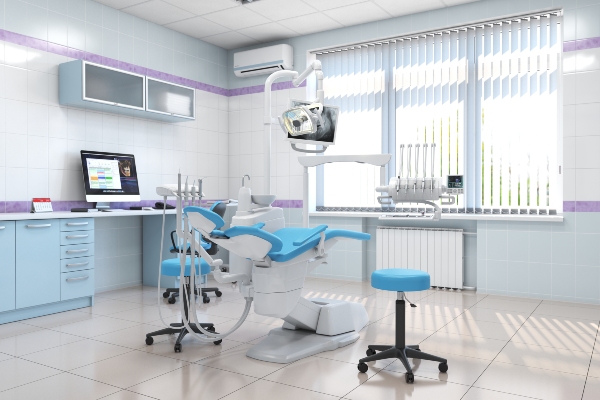What Can Happen If You Don’t Get a Chipped Tooth Treated?

Ending up with a chipped tooth after eating something hard or suffering from facial trauma can cause you to panic. This type of damage can be either tiny or big. Dental chipping weakens the tooth’s structure, whatever the size of the chip. If you want to find out the consequences of not receiving treatment for your chipped tooth, here are the details.
Pressure sensitivity
A chipped tooth is weak and susceptible to bacterial infection. It can expose the tooth’s nerve. The cracks from the chipping may already be there because of a developing cavity. These prove how weak the tooth is.
Tooth decay deteriorates a tooth’s density. The weak dental structure produces cracks. These cracks can contribute to a chipped tooth. Chipping can result from putting enough pressure on the cracked tooth. Even a little pressure can chip off parts of the tooth. This results in tremendous pain.
Broken tooth
A chipped tooth with fractures can become a broken tooth. Chewing on a hard piece of food will increase the tooth’s risk of breaking or splitting. The tooth will then need more extensive and expensive treatments. Seeing a dentist for chipping will save the patient time as well.
Tongue injury
Ignoring a tooth chipping can leave the soft tissues of the mouth vulnerable to cuts and infections. The edges of a chipped tooth are sharp and jagged. Choosing not to have treatment for this injury may lead to a cut in the tongue. The mouth’s environment is full of bacteria. Any wound in this environment is prone to infection.
Temperature sensitivity
This is a terrible consequence of a chipped tooth. Part of the effects of this dental damage is losing a significant layer of enamel. Without this layer, the tooth is exposed to different types of acidic, cold, sweet, or hot drinks and foods. The sensitivity can make it challenging for the patient to drink or eat.
Infection
Exposure of the dentin layer of the tooth happens when there is dental chipping. This makes the tooth susceptible to more infections and cavities. The infection can damage the tooth’s root. An abscess can also form. This worsening infection can spread throughout the body and impact a person’s general health.
Dental extraction
Setting aside the treatment for a chipped tooth can lead to the worsening of the infection. Pain will continue. Bacteria will spread to the surrounding gums and teeth. This discomfort may reach the jawbone, and this will prompt a dental extraction. Replacing the tooth with a dental implant can prevent the remaining teeth from shifting. It can also prevent the jawbone from deteriorating.
Benefits of repairing chipped teeth
Chipping the teeth can happen anytime. Even if the chipping is small, repairing it is necessary. The dentist can discuss the different types of treatments available. But the most important part of repairing the chipped tooth is the desire to do so. Here are the benefits of treating a chipped tooth:
- Renews the smile
- Restores self-esteem
- Relieves pain while chewing
- Gives peace of mind
- Improves dental health
The causes of dental chipping
Teeth chip because of many reasons. Facial trauma, biting hard objects, and teeth grinding are the most common causes of dental chipping. Weakened teeth are easy to chip. Tooth decay and cavities can weaken the teeth by destroying the enamel. Acid reflux can contribute to the weakening of teeth. The acid from the stomach can erode the enamel.
Available treatments
The dentist will discuss available treatments for chipped teeth. Bonding is for repairing minor chipping problems. The dentist will apply a composite resin material on the tooth. Then, the dentist will mold it to complete the tooth’s shape. This repair method can last for at least 10 years.
Another option is a dental onlay for repairing a small portion of the affected tooth. This can go on chewing surfaces of molars. The dentist may suggest a complete crown instead if the damage is significant. Veneers can also hide the chipping. The dentist will need to shave off some of the enamel to make room for the porcelain shells. This restoration can last for about 20 years.
A chipped tooth can give you more problems if it does not get immediate treatment
Getting treatment for it right away can help prevent worse dental issues, whatever size the chipping is. Neglecting treatment will leave the affected tooth vulnerable to more damage and infection. Seeing your dentist can help prevent issues after your dental chipping. It will not take long before your dentist can correct the issue during your next dental visit.
Are you considering treating a chipped tooth in the Pearl City area? Get more information at https://pearlcity.diamondheaddentalcare.com.
Check out what others are saying about our services on Yelp: Chipped Tooth in Pearl City, HI.
Recent Posts
Did you recently chip a tooth? Read on to learn about how a dentist can address this problem. A chipped tooth is one of those dental problems many people are forced to deal with at some point. It can be caused by several things, like a slip, fall, or facial trauma. It can also be…
Having a chipped tooth is no laughing matter! The effects of dental chips vary depending on the size and depth of the chip, but if left untreated, they can lead to much more serious problems down the road. The best way to deal with chipped teeth is to visit a dentist immediately to discuss treatment…
Having a chipped tooth may not seem like a serious concern, but it can affect your smile. Even a small chip can become larger and develop into bigger issues later on. That is why it is usually a good idea to treat and repair this damage. Your dentist has the knowledge and training to properly…
A chipped tooth may seem minor, but it can actually lead to serious complications if it goes untreated. One's oral health can be at risk, as a chip in a tooth can result in excess food getting stuck, causing bacterial buildup. Additionally, a chipped tooth may have sharp edges that can put the soft tissues…


